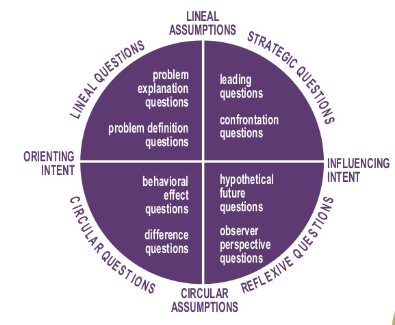The intention of these questions is to project the counterpart into a hypothetical scenario that may or may not happen. It helps thinking ahead about the possible solutions to adopt in case the assumed situation becomes a reality. Asking such questions is an excellent exercise when, for instance, a team is asked to put in place a contingency plan.
What do you think your team can do to prepare in case of a third lock-down?
Process-interruption questions
When you see that you directions lead you to the wrong place, what do you do next?
Today I have introduced to you four key question types to practically help sharpen the reflexive ability of your teams, to help with idea generation and to help anticipate needs and analyze complex scenarios. I wonder if your perception about questioning has changed? And if it has, in which way. I have endeavored to transition thought from a position in which the asking of questions is viewed as a sign of weakness and vulnerability to one in which is an indication of skillful leadership, to guide and to get the best from your teams.
Do you want to know more about systemic questioning and desire to experience it yourself to enhance your leadership awareness and decision making process? I invite you to contact us at bCoached by using the link below.


